An adoptive mom was charged with abusing her Ethiopian son. Then the case was dropped
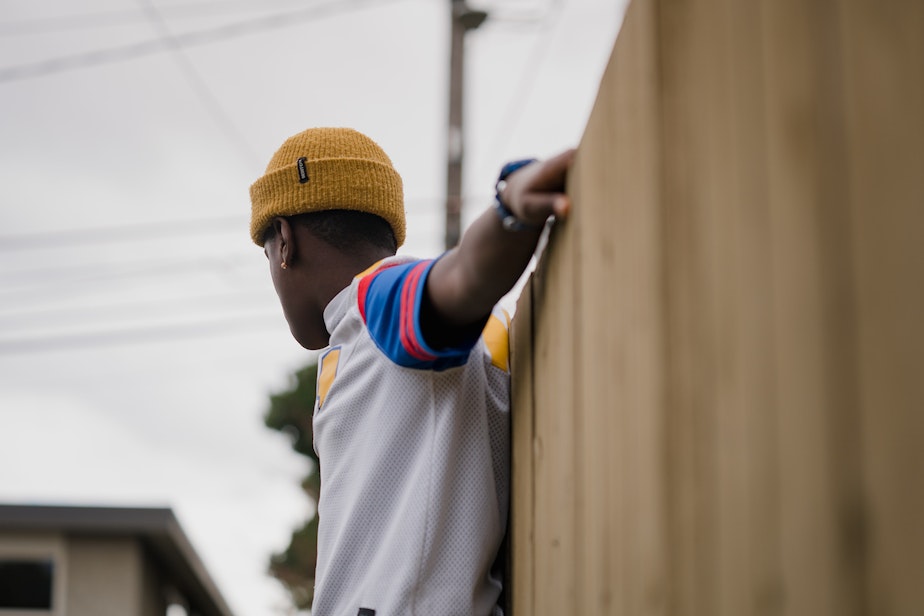
A
t 9 months old, baby Getahun was described as happy, active, and laidback. He had been adopted the month before from Ethiopia, by Kyle Wohlers and Matthew Willis, a couple living in western Washington state.
“He enjoys looking at brightly colored objects and just watching what is going on around him,” wrote a caseworker with Bethany Christian Services in an adoption follow-up report in 2010.
Now 13 years old, Getahun, identified here by his middle name to protect his identity, was small. At 16 pounds, he was in the 1st percentile for weight when he arrived in the U.S. His weight fluctuated over the years, but remained low by American standards.
Getahun’s adoptive parents initially attributed his low weight to malnourishment as an infant in Ethiopia. Later, they cited an unspecified eating disorder borne from neglect he’d experienced prior to being adopted.
That explanation didn’t sit right with people in their small community on Lopez Island, who reported noticing that Getahun and his adoptive parents did not connect with each other. Was Getahun's state the result of long-term trauma from being an orphan, they wondered, or was something else going on?
Sponsored
It was a question that detectives, doctors, and prosecutors grappled with, too. Child abuse is difficult to discern, and investigators often rely on subtle hints rather than concrete evidence to determine whether a child has been maltreated. And like many personal crimes – in which the victim’s body is the scene of an alleged offense – child abuse cases are tough to prosecute.
The detective on the case ultimately determined there was enough evidence to forward it to the San Juan County Prosecutor’s Office.
Kyle Wohlers, Getahun’s adoptive mother, was charged with second-degree criminal mistreatment in 2021. Willis, her husband, was not charged. Both have vehemently denied abusing Getahun.
But this year, the prosecuting attorney decided against going to trial — not because she didn’t believe there was enough evidence of abuse, but because Getahun had “suffered mental health challenges which will prevent him from testifying,” which would be key to securing a conviction, she wrote in a court motion to dismiss the case.
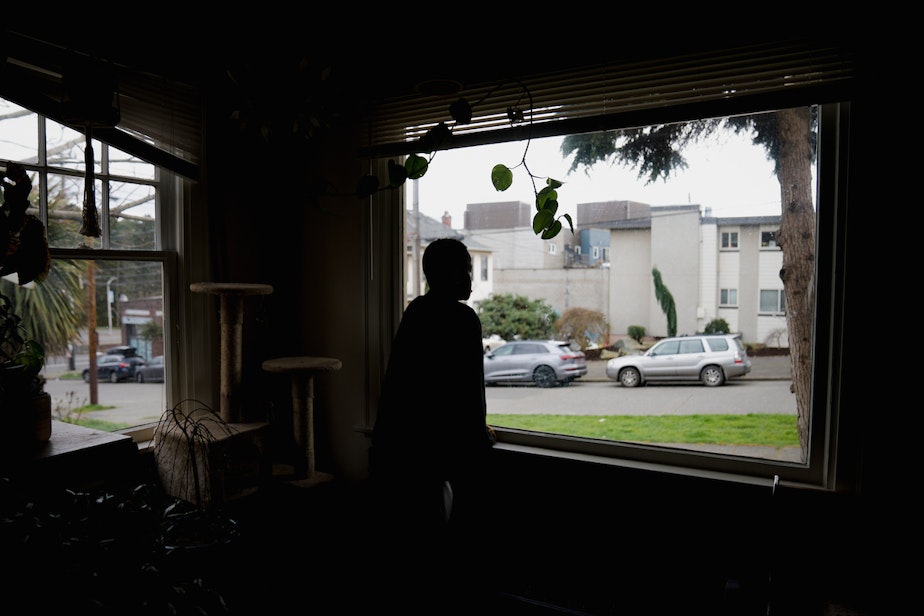
Sponsored
Trouble bonding
When Getahun was 19 months old, Wohlers and Willis described him as “hard to please,” and prone to temper tantrums, according to adoption agency records. The couple told the adoption caseworker that the toddler avoided eye contact and wasn’t bonding with them. They expressed concerns about his weight.
They took Getahun to specialists: An endocrinologist wrote that Getahun had a voracious appetite and would gorge himself to the point of vomiting, according to a criminal investigation report. A psychiatrist noted that Getahun targeted his anger at Wohlers.
When Getahun was 5, he was diagnosed with reactive attachment disorder – a diagnosis that resonated with his adoptive parents.
Signs of a reactive attachment disorder in children include trouble bonding with caregivers, a history of neglect, and trouble being comforted. Some, like Getahun, struggle to grow.
Sponsored
Within a year of this diagnosis, Wohlers and Willis considered finding Getahun a new home.
Four years later, in 2018, he moved in with an elementary school teacher named Marie, referred to here by her middle name to protect her son’s identity. Marie and her husband legally adopted Getahun three months later.
Over time, Getahun began telling them stories indicating he had been abused by his previous family. He also disclosed the alleged abuse to a therapist, who diagnosed him with post-traumatic stress disorder.
Marie and her husband reached out to Child Protective Services, who, after doing their own investigation in 2020, contacted law enforcement.
The criminal investigation took five months.
Getahun told investigators that he was frequently hungry while in the care of Wohlers and Willis, and wasn’t given enough food.
Sponsored
“Sometimes I would try to block that I was still hungry – like I would try to force it away,” Getahun told Detective Lukas Peter of San Juan County Sheriff’s Office.
“If I ever said I was still hungry, I would get in trouble or sent to my room,” he said.
In his interview with Peter, Getahun referred to taking food without Wohlers’ permission as “stealing.”
“I couldn’t take big things because it was noticeable,” Getahun said. “I usually would take … like Ritz Crackers.”
Getahun said that Wohlers forced him to gorge himself with food to the point of vomiting, and on one occasion, forced him to drink a mixture of oil and hot sauce.
Sponsored
But Wohlers told Peter that it was Getahun who gorged himself sick and chose to consume unusual substances, like Play-Doh and dog food.
Getahun said that Wohlers threw a dog bone at him when he was about 7 years old, knocking out one of his teeth, as punishment for taking food without permission. That allegation was “potentially corroborated” by his dental records, “where [Getahun] is described as having a tooth that had been missing for over a year, since his re-adoption,” Peter wrote in his investigation report.
Getahun told investigators that Wohlers beat him on multiple occasions and forced him to sleep outside as punishment. But allegations of that nature were “difficult to corroborate,” Peter wrote, considering the lack of physical evidence from that time or witness accounts.
Getahun also said the family had hurled racist insults at him, including the n-word.
A school administrator told Peter that she had heard Willis call Getahun an anti-Black slur at the grocery store.
During the investigation, two pediatricians described what Getahun had endured with the family as “child torture” and said Getahun’s small stature and behavioral issues appeared to be caused by “severe abuse and neglect.”
But a pediatrician commissioned by Wohlers and Willis following the investigation disagreed. She told KUOW that she saw signs of a common and unconcerning growth delay — not starvation — when she reviewed Getahun’s medical records.
The first two pediatricians, who work with Seattle Children’s Safe Child and Adolescent Network, said they didn’t think Wohlers and Willis had been truthful with Getahun’s doctors.
They wrote: “The dishonest reporting of the parents to medical providers about feeding him a normal diet, and not disclosing the physical and psychological abuse he was suffering at home, appear to have been what prompted extensive medical evaluations into his poor weight gain and disruptive/impulsive behaviors.”
Dr. Niran Al-Agba disagreed with that finding. Al-Agba, a pediatrician based in Silverdale, Washington, told KUOW she found another potential explanation for Getahun’s low weight while in Wohlers’ and Willis’ care: constitutional delay, a phenomenon in which otherwise healthy children grow at a slower than average rate.
Al-Agba was prepared to provide expert testimony on behalf of Wohlers, had this case gone to trial. Al-Agba reviewed Getahun’s medical records, from the time he was adopted from Ethiopia to two years after moving in with Marie. She said his growth patterns didn’t show clear evidence of starvation.
“After he was adopted [by Marie], his weight and his height started to kind of increase in the percentile,” she said. But then his rate of growth suddenly stalled. “If this was nutrition related, that shouldn't happen – the child should be doing catch up growth or makeup growth. And that wasn't present.”
However, Al-Agba said that without having examined Getahun herself or knowing health information for his biological parents, she could not say definitively whether constitutional delay was behind his lack of growth.

Food problems
In 2015, Wohlers and Willis moved their family to Lopez Island, the third largest of Washington’s San Juan Islands with a population of less than 2,600 year-round residents.
The couple told staff at Lopez Island Elementary about Getahun's reactive attachment disorder diagnosis and food problems. He would steal other kids’ lunches and eat from the trash, so his lunch periods needed to be closely monitored, they said.
His parents said his behavior stemmed from food anxiety, which is common among kids with reactive attachment disorder. But during the criminal investigation, two school staff said they questioned whether Getahun’s parents were providing him with enough food.
Wohlers disenrolled Getahun from the school as a third grader in 2017; he was homeschooled while her biological sons remained in school. Getahun later told Peter that it was mostly during this time that he didn’t get enough food.
Getahun’s disconnect with his family became more apparent when he was left out of their trip to Disneyland, staying behind with a family friend. By Getahun’s account, they excluded him, “‘cause they didn’t want me to ruin the trip.”
Willis told Peter, “It was kind of eye-opening to see what our family would be like without him.”
A foreign exchange student from Georgia had come to live with the family in 2015, after their landlord offered reduced rent as an incentive to take him in.
The student, Ako Kiparoidze, told Peter in a written statement that he’d never witnessed Wohlers or Willis physically harm Getahun, but had thought Wohlers was “quite rude” to Getahun. He said she didn’t seem to treat him equally to her biological sons.
Kiparoidze also wrote that he didn’t get enough to eat during his roughly six-month stay with the family. He said he lost about 16 pounds in that time.
Kiparoidze went to live with a high school football coach midway through the year. They both told Peter that Kiparoidze gained between 20 and 30 pounds after leaving Willis and Wohlers. The coach attributed Kipariodze’s gains to him eating more and lifting weights.
“To sum up, food issues and how they treated [Getahun] was the reason why I moved,” Kiparoidze wrote.
Through her attorney, Wohlers denied not providing enough food for Kiparoidze. She said she and her husband always saved food for Kiparoidze, but that “he didn’t like to eat a number of foods that the family ate often.” Additionally, Wohlers said she would buy Kiparoidze foods he’d requested from the grocery store.
In 2015, Wohlers and Willis began to discuss putting Getahun back up for adoption. But three years went by before the couple found someone willing to take Getahun in – a schoolteacher named Marie who had noticed changes to Getahun’s personality and appearance, which concerned her.
Despite being painted as difficult by his former parents, Getahun was well-liked in the community, according to Peter’s report, “consistently described…as being ‘wonderful,’ ‘delightful,’ ‘engaged,’ and ‘cooperative.’”
But he had become subdued, “his head down, and looked terrified,” Marie wrote in a statement provided to Peter. “His eyes were sunken in, his cheek bones sticking out.”
In 2018, Marie and her husband discussed taking Getahun in. When she saw Wohlers at Lopez Elementary, she said she started dropping hints about adopting Getahun.
“My husband and I would really love to adopt someday,” she recalled telling Wohlers. “If you guys ever need somewhere for him to stay, we have an extra room in our house.”
Marie later met up with Wohlers and Willis to discuss adoption, generally. At some point in the conversation, she said, the couple asked explicitly if she would like to adopt Getahun.
“It was the weirdest conversation of my life,” Marie said.
Getahun visited with Marie and her husband for about a week before moving in with them for good, around his ninth birthday.
“I remember the first time he visited, his tummy hurt so bad because he ate a full meal,” Marie said. “I had to rub his tummy.”
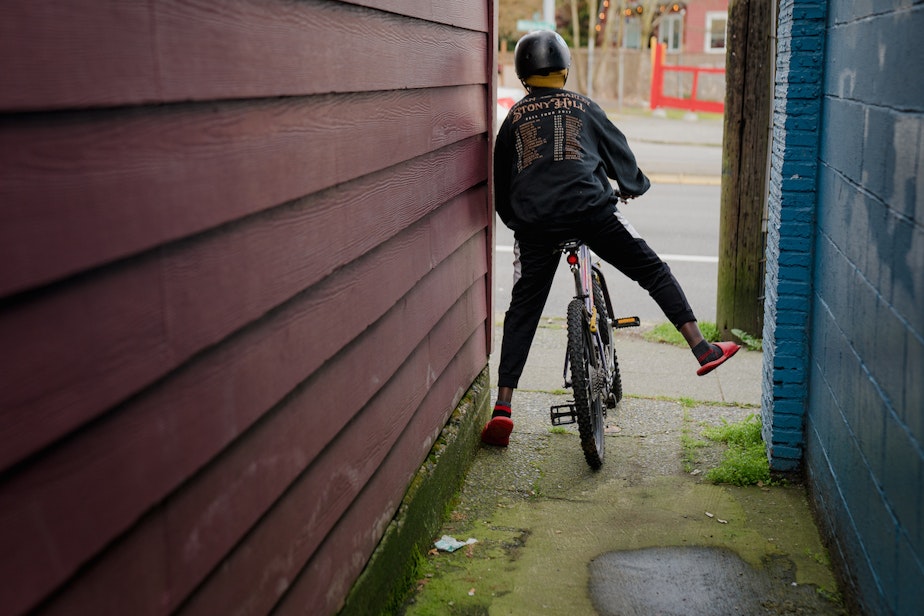
Conflicting accounts
Over the years, Wohlers and Willis insisted that Getahun had a habit of lying. Wohlers told Peter that Getahun “lied a lot and manipulated to get what he wanted, which was food.”
Anecdotally, children with reactive attachment disorder are prone to distorting the truth, although this isn’t officially considered a symptom of the disorder.
During the criminal investigation, the question seemed to be: were Wohlers and Willis lying to cover up their abuse of Getahun, or was Getahun telling tall tales?
More than 25 witnesses participated in the criminal investigation. Roughly a dozen said they’d had concerns while Getahun was in the care of Wohlers and Willis.
For instance, a family friend who’d kept Getahun on several occasions noted that Wohlers had told her not to give Getahun snacks, and said Wohlers seemed “cold” toward the child. The family friend also said Getahun had “appeared very excited about being given his own cup of water and the ability to drink whenever he wanted,” while at her home, Peter wrote in his report.
The same woman remarked that Getahun “appeared very ‘conditioned’ like a little soldier,” and said he’d “become anxious and would wring his hands” when it was time for Wohlers to pick him up.
At one point, school staff met to discuss whether they should contact Child Protective Services on Getahun’s behalf, according to a former school administrator. But in the end, they decided not to.
Six family members of Wohlers and Willis were interviewed during the criminal investigation. They described them as engaged parents to Getahun and their two biological sons, according to Peter’s notes. They denied seeing the couple withhold food from Getahun or mistreat him.
One of Wohlers’ relatives called them “good parents, and very loving.” Another relative said she and Willis “would do homework with the kids and do chores with them and cook with them.”
Relatives also described Getahun as being well-behaved during their interactions, one stating that “he got along ‘great’ with [Getahun] and really liked him.”
Family members also shared secondhand accounts of Getahun’s bad behavior. One of Wohlers’ relatives said he’d heard of Getahun "hearing voices that made him do bad things.” Another recalled hearing that Getahun “stole food and lied about it,” Peter noted.
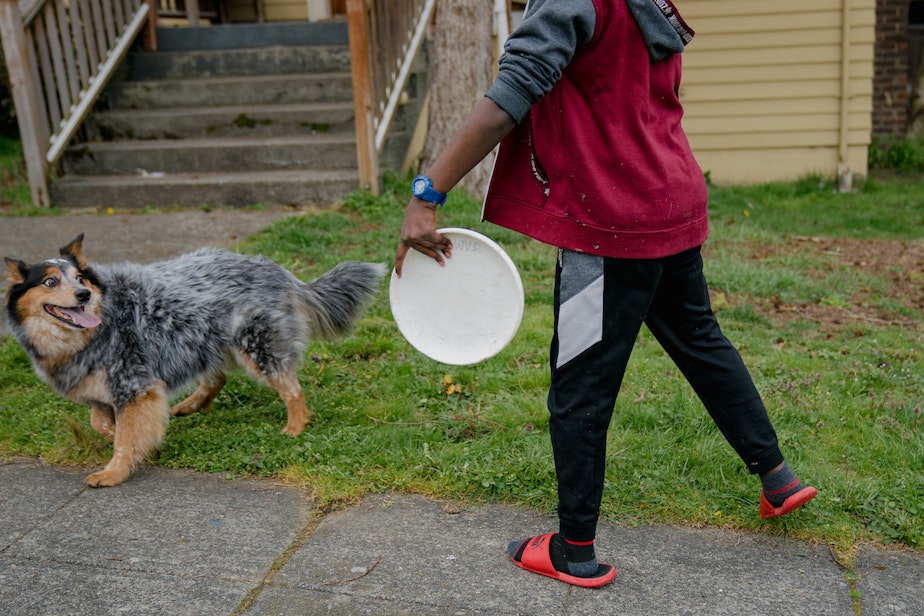
Prosecutorial dilemmas
In 2020, Getahun was one of more than 47,000 Washington state children at the center of a child welfare investigation, according to the nonprofit research center Child Trends. Roughly 8% of those investigations resulted in a finding of maltreatment.
But most child abuse cases don’t make it to trial – in part because of the complexities of calling a traumatized child to the witness stand. Victim credibility issues and a lack of sufficient evidence are also common factors.
Children who are physically abused or neglected, as Getahun alleges he was, are even less likely to have their day in court than kids who have been sexually abused.
Under Washington state law, a child doesn’t always have to appear in court to testify against their alleged abuser. Hearsay in these cases – such as statements Getahun gave to law enforcement – could be submitted to a court, if the child is “unavailable as a witness.” This exemption covers kids who are unable to testify due to mental illness.
The San Juan County Prosecutor’s Office declined to comment on whether this exemption could be applied to this particular case.
Even with room for such an exemption, there are other considerations a prosecutor must make, said Kara Hodges, a North Carolina-based prosecuting attorney who handles child abuse cases.
“Generally speaking, and this is a constitutional issue, we need the person who is accusing the offender of the offense to testify,” Hodges said.
Hodges said that even if pediatricians retroactively find that abuse has occurred – like in Getahun’s case – it could be hard to get around why other doctors, who are mandated reporters, didn’t report signs of abuse at the time they initially saw a child.
“To prove serious injury may not be the same as a doctor getting on the stand and saying, ‘Serious injury,’” Hodges said. “It would generally be the jury's decision about if we have met the burden to prove the level of assault, the level of injury.”
Hodges said that in a case like this, a defense team would likely commission their own medical review – as Wohlers and Willis did – that could contradict findings made by doctors on behalf of the prosecution.
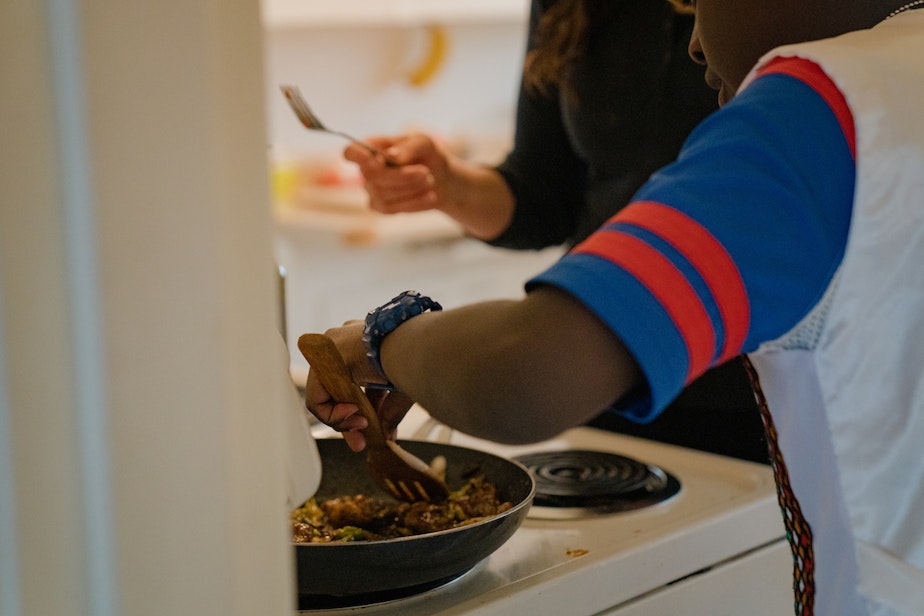
A civil case
Marie maintains that Getahun has not had food issues since moving in with her and has maintained a healthy weight.
“He eats the normal amount a boy his age should, he has never stolen or snuck food, he makes his own food and puts it away when he makes too much, and gets more when he needs more,” she wrote in a statement to Peter.
Wohlers said during the criminal investigation that her family “did the best we could do for him for 8.5 years and then we made the decision we thought was the best for him and our other kids.”
Two years after adopting Getahun, Marie and her husband moved with him and their baby daughter off Lopez Island and back to the Seattle area.
“After all this, we're like, ‘Why would we want to stay here?’” Marie said. “Every time we see them on the road or at school, it just sets [Getahun] back. It’s like seeing your nightmare every day.”
Although the criminal case against Wohlers was dropped, Marie said she isn't done fighting for justice for Getahun.
Getahun’s family is suing Lopez Island Schools for damages related to the district’s failure to report the alleged abuse. Marie said she hopes the lawsuit can be resolved through mediation.
“You would think you wouldn't have to chase people around to protect kids,” she said.




